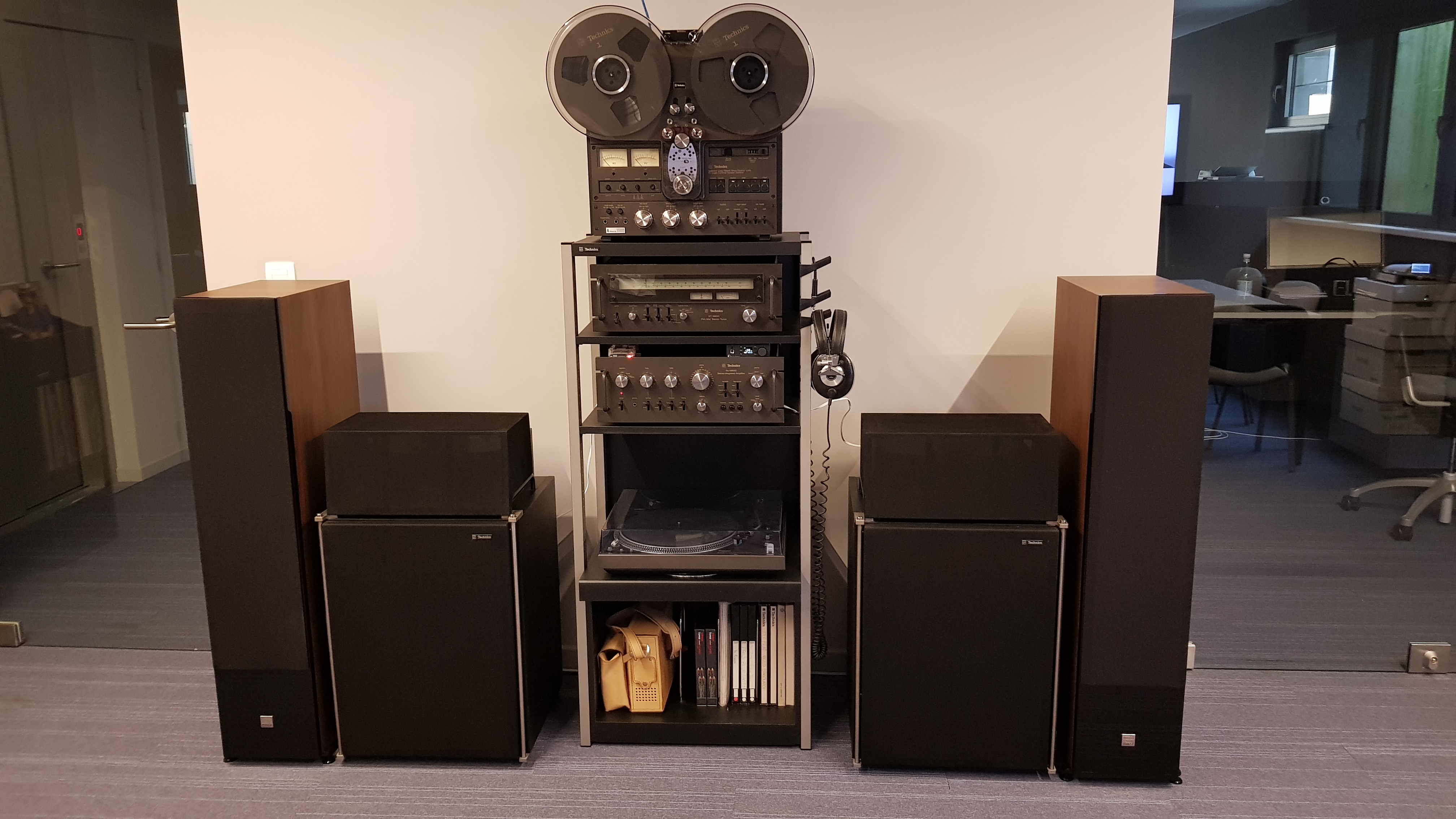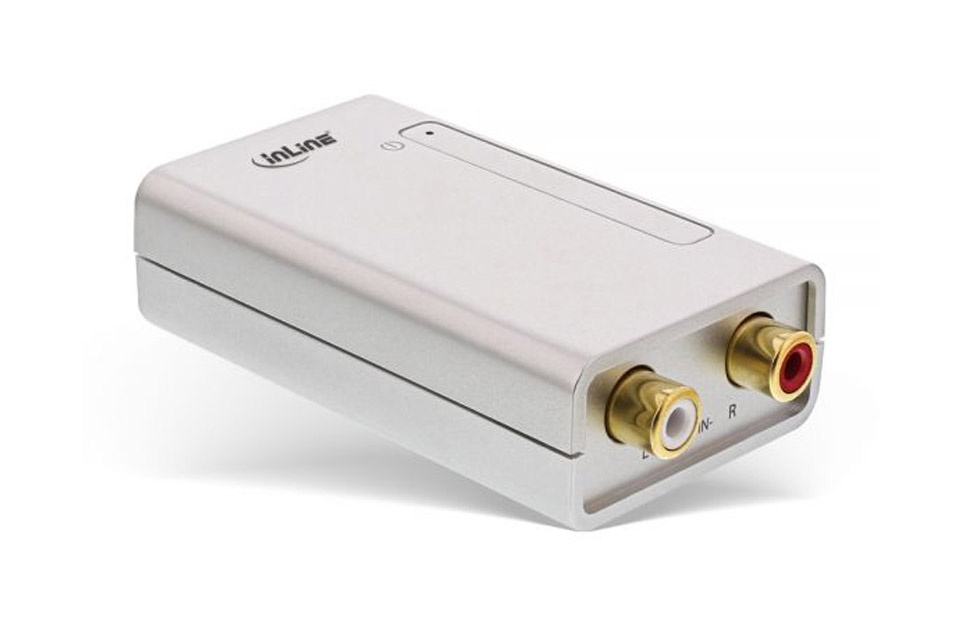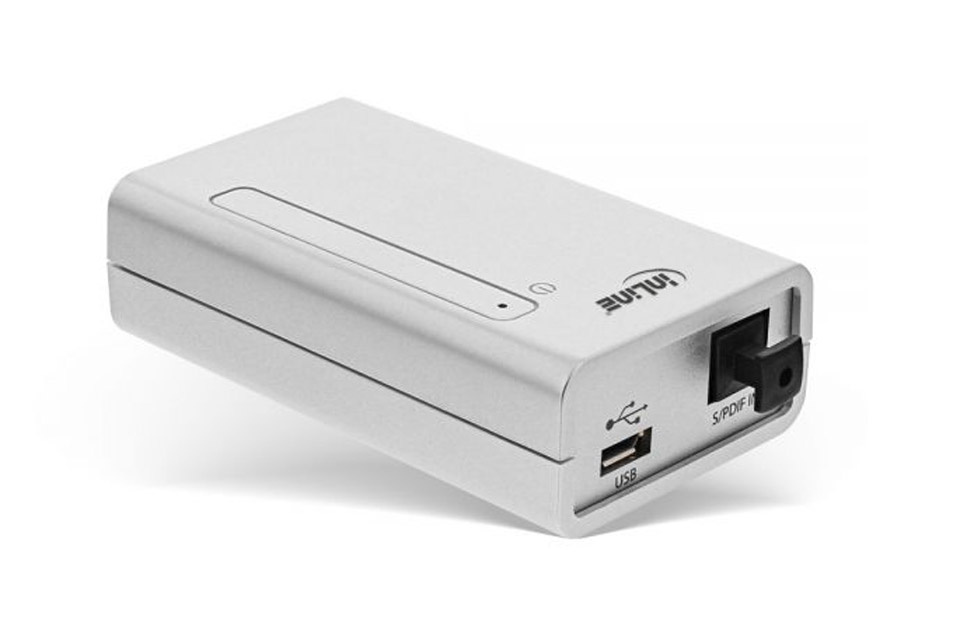Interesting project.
What is the recommended hardware to go from RCA out to USB in?
The log line shows that you are running the 64 bit beta version of DietPi, the Entrypoint extensions are not available for this (yet). If there is no real need for 64 bit, I suggest that you switch to the 32 bit variant.
Difficult to tell without knowing what setup you have in mind, e.g. is the RCA at line level?
In general you use a Raspberry Pi HAT or an external USB soundcard that works on Linux (ALSA). The device used should have an analog input.
Thanks @Jan_Koudijs that’s what I feared you would say… I was using 64 bit as my RPi4 has 4GB RAM. Oh well, back to the drawing board!
I have a vintage Technics SU-8600 amp, so line level. I use a RPi powered by RoPieee, and a few meters away is a RPi running Dietpi and Roon Extension Manager.
Nonr of these RPi’s has a HAT. I Have a spare RPi with Allo Boss DAC and Allo Amp HATs powered by RoPieee XL.
What would be the best option?
I suppose the Dietpi RPi.
The Opticon 8 speakers have been moved to the bedroom.
This may be an option: InLine® HiFi Audio to USB Converter RCA and Toslink Audio Input
The InLine® HiFi Audio to USB Converter is a high quality piece of equipment to convert 2-channel audio signals (analog stereo) into digital audio signals up to 192kHz / 24-bit, using the CMedia CMS6631A USB2.0 Audio chipset. This supports the latest USB Audio Device Class Definition (V2.0)
- Converter for digitizing analog audio signals at resolutions up to 192 kHz / 24-bit
- Supports the recording of S/PDIF audio signals in 16/24-bit up to 192 kHz
- Asynchronous mode to achieve low jitter.
- Integrated low-jitter oscillator
- Settings of the sample rate selectable
- Supports ASIO and WASAPI
- Output: USB 2.0 Micro-B connector
- Input: Analog 2x RCA female (red / white) and digital Toslink connector (optical, S/PDIF)
- Power supply via the USB port
- Compatible with Windows 10, 8.1, 8, 7, Vista, XP
- Please check whether the package contains the following items: 1x Audio to USB Converter 192 kHz / 24-Bit, 1x Audio cable 2x RCA male to 3.5mm Stereo plug, 1x Micro-USB cable, 1x User manual, Driver CD
Nice vintage system you have!
The USB device should be connected to the RPi running DietPi/Extension Manager, on that you can install the Audio Entrypoint and Gateway.
An input device like this is what you need. For this specific one it doesn’t state anything about Linux compatibility so that is a risk.
The Behringer UFO202 has been reported to work, is line/phono input switchable, but it is lower on sample rates (and on price).
I purchased the Technics grear in 1978 at 16 yo with money I had earned myself.
And payed just over the original price to get the set fully refurbished. 
Just ordered the Behringer UFO202 and an Audioquest 8 meter Tower RCA cable.
I tried one it’s crap and doesnt support Linux.
For anyone looking into options for supported USB phono stages, I can confirm that Entrypoints works very nicely using the Pro-ject Record Box E.
This is a decent budget phono stage and worked out of the box with Entrypoints.
Thanks for putting effort in make all these plugins and so kindly share it with the rest of us!
I have a question regarding Bluetooth EntryPoint.
My Apple Iphone and my Apple Ipad do not find any system. Not in Bluetooth from device, not from Tidal or Spotify (either in the default list or search in the Airplay & Bluetooth)
I did follow the Step 7 and 8 in the installation guide
I have set up the Entrypoint Gateway and the turnable function as it should
Im using Device model :
RPi 4 Model B (armv7l)
DietPi v6.34.3
My dietpi is clean setup
[x] 86 Roon Extension Manager: Manage extensions from within Roon
[x] 162 Docker: Build, ship, and run distributed applications
Sound card: [hifiberry-dacplusadcpro]
Bluetooth : [On] *did run systemctl mask bluetooth followed by a reboot
(When checking bluetooth service i do get : Failed to start bluetooth.service: Unit bluetooth.service is masked.)
Are there any that have this setup working with Apple devices so i either can rule out that its supposed to work or not, or any able to point me in right direction how to set this up?
Do you have access to a non-Apple device that you can use for a test? Apple devices were not tested by me as I don’t have any. The Bluetooth protocol that is used is A2DP, from what I have read this is supported by Apple.
Hi Jan. No unfortually. My usual suspect when something are not working it’s always apple for some reason. They seems only have standards for something to break. These days visitors at home are more rare then chicken teeth, so I hoped some else had tested and were able to verify
I think you are the first in providing feedback on the Bluetooth Entrypoint, hasn’t really taken off yet.
What would be helpful is if you can provide me a log file. You do that by restarting the BT Entrypoint with logging via the Extension Manager. Details can be found here.
Hi, I’m wondering if Entrypoints could be used to stream an instance of LMS/Squeezelite into Roon?
I’ve recentry made the move to Roon and I’m loving it, but missing a few things that I had with LMS (BBC Sounds, Sprocket podcasts, Spotty)
I could run LMS/Squeezelite on a separate Pi and use 2 audio adapters to get across to an Entrypoint, but doing it with some sort of Alsa loopback would be much tidier.
The BT entrypoint feels like it might be close?
Thanks
I had not thought about a use-case like this before, and had a look at loopback in ALSA.
If you create a loopback device, then this device is selectable as a soundcard in the Audio Entrypoint. If the other end of the loopback can be selected as the output for Squeezelite then this might work. The test I did (on DietPi) is playing a wav file to the loopback device and then capturing from it with the Entrypoint and that worked.
Such a loopback setup might also work with Raspotity to create a Spotify connect client.
I would love to hear if this works, gives a new set of possibilities!
The guide I used to setup the loopback device is this one:
https://sysplay.in/blog/linux/2019/06/playing-with-alsa-loopback-devices/
Thanks - I’ll have a play when I get a minute and let you know how it goes…
No luck getting ALSA loopback working yet. I’ve played with a quick/nasty workaround - a Behringer UCA202 USB interface with an analogue out>in loop. That works so I’m able to listen to Spotify etc via LMS in Roon.
I’ll keep working on it to get it done properly!
(edit: working through this Alsa Opensrc Org - Independent ALSA and linux audio support site - looks like snd-aloop is included in the dietpi kernel so should do the job…)
Yep, that is what I used in the test I talked about.
Hi Jan, thanks for the great work! Installed without a problem, using Audio Entrypoint for playing live CD’s via Toslink input on a Hifiberry Digi+. I have one question: I know from previous experiments with Icecast that it is possible to reduce the latency somewhat by setting ‘burst-on-connect’ to 0 in the icecast.xml config file. After installing everything I cannot find the config file on my DietPi (probably because it installs in a Docker image?). Is there any way to change it? Thanks!


